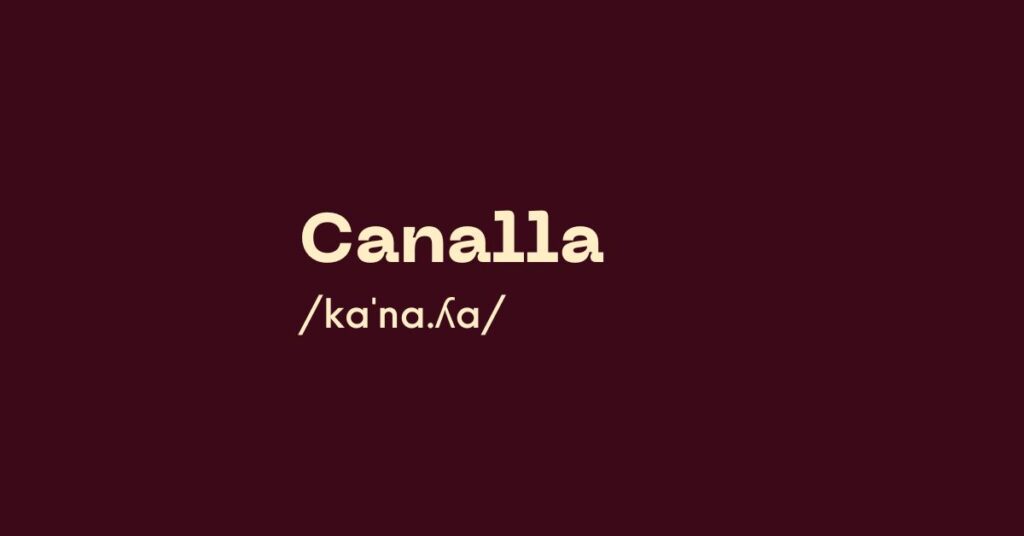Today’s Spanish word of the day is “canalla”.
It’s a noun that has a similar meaning to the English words “scumbag”, “scoundrel” and “rascal” when referring to an individual.
When referring to a group, it can be translated as “rabble” or “riffraff”.
The word originally meant “pack of dogs”, before becoming a way of referring to dishonest or unpleasant people.
Example Sentences
Beginner
Here are some example sentences at beginner (A1/A2) level:
El niño travieso es un canalla.
The mischievous boy is a rascal.
La película tiene un villano muy canalla.
The movie has a very villainous character.
No debes jugar con esa canalla.
You shouldn’t play with that rascal.
Intermediate
Here are some example sentences at intermediate (B1/B2) level:
La policía detuvo al canalla que había estado robando en las casas del vecindario.
The police arrested the scoundrel who had been robbing houses in the neighborhood.
Si no fuera un canalla, habría devuelto el dinero que tomó prestado.
If he weren’t a scoundrel, he would have returned the money he borrowed.
Me siento decepcionada de haber confiado en ese canalla.
I feel disappointed for having trusted that scoundrel.
Advanced
Here are some example sentences at advanced (C1/C2) level:
Mi vecino es un viejo canalla que siempre anda quejándose del ruido que hacen los niños al jugar.
My neighbor is an old scoundrel who is always complaining about the noise the children make while playing.
Ese político se ha enriquecido a costa del pueblo. Es un canalla sin escrúpulos que solo busca su propio beneficio.
That politician has enriched himself at the expense of the people. He’s an unscrupulous scoundrel who only seeks his own benefit.
No puedo creer que Juan haya engañado a su esposa con otra mujer, es un canalla de lo peor.
I can’t believe Juan cheated on his wife with another woman, he’s the worst kind of scoundrel.

